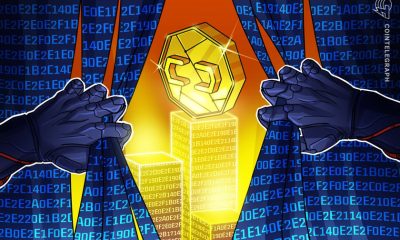Blockchain
How the Crypto World Is Preparing for Quantum Computing, Explained

Blockchain is regarded as the most secure technology, but can it face the quantum computing threat? Learn how the crypto world is preparing for the quantum leap #Sponsored
Quantum computing is a new method of processing data and solving problems, which differs from classical computing that is widely used in everyday devices.
Quantum computers, which have at times been dismissed as a physical impossibility, have gone from the realm of “If” to the realm of “When” over the last decade. To put that into perspective, some computations — previously thought to be functionally impossible due to their incompatibility with traditional computing — are now becoming only a matter of time for quantum computers.
At the moment, blockchains’ cryptographic functions are considered to be secure, given that breaking them would need massive computing resources that cannot be achieved with classical computers. However, a quantum computer would be able to break this kind of cryptographic shield in a matter of days.
While this threat is only theoretical now, it can materialize in about a decade.
The idea behind quantum computers is to go beyond the limits of traditional computers by leveraging quantum mechanics — a field in physics that describes the behaviors and laws on a subatomic scale.
Quantum phenomena are not easy to grasp because they are governed by completely different laws compared to classical mechanics. As Nobel Laureate Richard Feynman once said, “If you think you understand quantum mechanics, then you don’t.”
Think about it: Subatomic particles can exist in multiple places at once — called superposition — move forward or backward in time, and even teleport through so-called entanglements. Quantum computers aim to benefit from these sci-fi characteristics.
While the transistors of classical computer processors operate with bits, which encode either a zero or a one, quantum computers use so-called quantum bits, or qubits. The latter can encode a zero and a one into two different states as well as leverage their “superposition” and “entanglement.” In other words, qubits allow for a huge number of calculations to be carried out simultaneously.
Today, the leaders of quantum computing are United States tech giants IBM and Google. Intel and Microsoft come next as serious contenders. Amazon is also keen on joining the league. Recently, the e-commerce behemoth announced that it provided quantum computing as a service on its AWS servers.
Google even claimed recently that it had achieved quantum supremacy, a milestone in quantum computing, in which a quantum device can solve a problem that typical computers cannot.

















